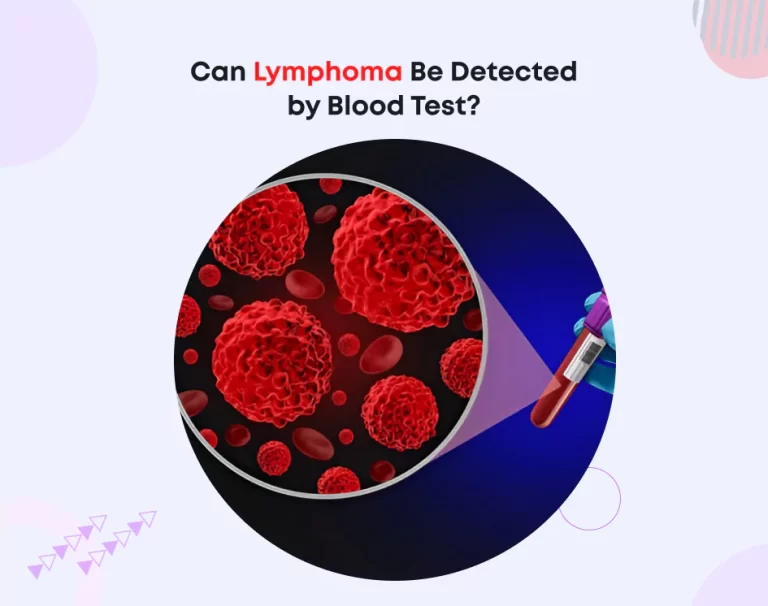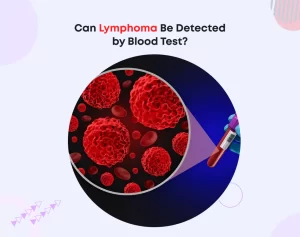
Can Lymphoma Be Detected by Blood Test?
Key Facts
- Lymphoma cannot be definitively detected by a blood test; diagnosis requires a lymph node biopsy and imaging.
- Blood tests can reveal clues suggesting lymphoma, such as low red blood cells, low platelets, elevated white blood cells, or high LDH levels.
- Common blood tests for lymphoma suspicion include: Complete Blood Count (CBC), Lactate Dehydrogenase (LDH), Beta-2 Microglobulin Test, ESR, and CRP.
- Blood tests alone are not diagnostic, but they help guide doctors toward further investigations when symptoms are present.
- Symptoms prompting blood tests include: persistent swollen lymph nodes, fever, night sweats, unexplained weight loss, and fatigue.
- Early detection of lymphoma improves survival rates. Combining blood tests with imaging and biopsies enables a more accurate diagnosis.
- Regular checkups and prompt medical evaluation for unexplained symptoms can lead to early lymphoma detection.
Lymphoma, a type of cancer that affects the lymphatic system, often leaves patients wondering how early it can be detected. One common question is: Can lymphoma be detected by blood test?
While blood tests play a crucial role in identifying certain abnormalities linked to lymphoma, they alone aren’t definitive for diagnosis. However, understanding how these tests contribute to the detection process can help individuals recognize early signs and consult healthcare providers sooner.
In this blog, we’ll explore how lymphoma interacts with the body’s blood, what tests can reveal, and why a combination of diagnostic tools is essential.
Understanding Lymphoma: A Quick Overview
Lymphoma arises when lymphocytes—a type of white blood cell—begin to multiply uncontrollably. This can lead to swelling in the lymph nodes, fatigue, and other symptoms. There are two primary types of lymphoma:
- Hodgkin lymphoma (HL)
- Non-Hodgkin lymphoma (NHL)
Both types may present similarly but have different biological behaviors. Early detection is critical to improve treatment outcomes.
Can Lymphoma Be Detected by Blood Test?
The short answer is: not directly.
A blood test alone cannot detect lymphoma. However, it can reveal certain clues. Here’s how:
1. Complete Blood Count (CBC)
A CBC assesses the levels of red blood cells, white blood cells, and platelets in the blood. In lymphoma patients, a CBC might show:
- Low red blood cell count (anemia)
- Low platelet count (thrombocytopenia)
- Elevated white blood cells (or reduced lymphocytes)
While these abnormalities don’t confirm lymphoma, they can raise suspicion, especially if accompanied by other symptoms.
2. Lactate Dehydrogenase (LDH)
LDH is an enzyme released during cell damage. Elevated LDH levels in the blood might indicate rapid cell turnover—a characteristic of lymphoma and other cancers. Elevated LDH levels may lead doctors to pursue additional diagnostic testing.
3. Beta-2 Microglobulin Test
This test measures beta-2 microglobulin, a protein found in lymphoma cells. Elevated levels can suggest active disease, especially in certain types of non-Hodgkin lymphoma.
4. Erythrocyte Sedimentation Rate (ESR) & C-Reactive Protein (CRP)
These tests measure inflammation in the body. Elevated ESR or CRP levels might hint at the presence of lymphoma, but they are nonspecific and can be elevated in many other conditions.
Why Blood Tests Aren’t Enough for a Lymphoma Diagnosis?
While blood tests can offer valuable insights, they are not enough to definitively confirm lymphoma. This is because lymphoma primarily affects lymph nodes and lymphatic tissues, which may not always cause changes in the blood—especially in early stages.
Here’s why a definitive diagnosis requires more:
Lymph Node Biopsy: Taking a sample of the affected lymph node tissue is considered the definitive method for confirming lymphoma.
Imaging Tests: PET scans, CT scans, and MRIs help detect enlarged nodes or organ involvement.
Bone Marrow Biopsy: In certain cases, lymphoma spreads to the bone marrow, making a biopsy necessary for accurate staging.
When Should You Get a Blood Test for Lymphoma?
You should consider seeing your doctor for a blood test if you experience:
- Persistent swollen lymph nodes in the neck, armpits, or groin
- Unexplained weight loss
- Persistent fever or night sweats
- Constant fatigue
- Itchy skin or rashes
These symptoms don’t always mean lymphoma, but they warrant medical evaluation. Your doctor may order blood tests to rule out infections, autoimmune diseases, or other causes.
Can Early Detection Improve Lymphoma Outcomes?
Absolutely. Early detection boosts survival and treatment success. Blood tests can contribute to early detection by signaling abnormalities, but they must be paired with physical examinations, imaging, and biopsies.
In fact, regular checkups and quick medical attention when symptoms appear can help identify lymphoma at an earlier, more treatable stage.
Takeaways
Can lymphoma be detected by blood test? Blood tests alone aren’t sufficient but can provide important clues.
Which blood tests might help? CBC, LDH, beta-2 microglobulin, ESR, and CRP can suggest lymphoma-related changes.
What is needed for a diagnosis? Biopsy and imaging tests are essential to confirm lymphoma.
When should you see a doctor? If you experience persistent lymph node swelling, fever, weight loss, or fatigue.
Final Thoughts
While lymphoma cannot be definitively detected through a blood test, these tests play a valuable role in early suspicion and monitoring. By understanding what your blood work can reveal—and what it can’t—you’re better equipped to seek timely medical advice.
If you have ongoing symptoms or feel unwell, see your doctor right away. Consult your doctor, get the necessary tests, and if needed, move forward with a proper diagnosis and treatment plan.






